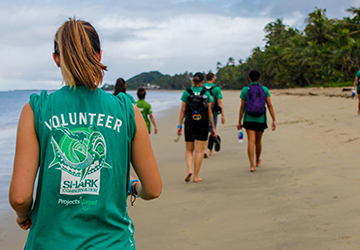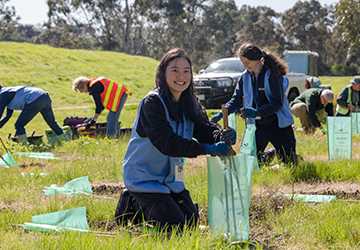How to Make Your Travel More Meaningful: Volunteering Abroad
Travelling is often associated with relaxation, sightseeing, and experiencing new cultures. However, many travellers seek ways to make their journeys more impactful. Volunteering abroad is one way to enrich your travel experience while giving back to the communities you visit. This article explores how you can make your travel more meaningful through volunteering abroad, offering insights into planning, opportunities, and the benefits involved.

Understanding Volunteering Abroad
Volunteering abroad involves working on projects or initiatives in a foreign country, usually in education, health, environmental conservation, community development, and more. It allows you to immerse yourself in a different culture while contributing to meaningful causes. Your impact can be significant whether teaching English, helping build infrastructure, or conserving wildlife.
Planning Your Volunteering Trip
Research and Choose a Project
Start by researching various volunteer opportunities that align with your interests and skills. Websites like Volunteer World, GoAbroad, and Idealist list numerous projects worldwide. Consider factors such as the project's goals, the skills required, the duration, and the location. Ensure the organization you choose is reputable and transparent about its operations.
Set a Budget
Volunteering abroad can have costs associated with travel, accommodation, meals, and program fees. Set a realistic budget that includes these expenses. Some organizations may cover part of the costs, so inquire about any financial support they offer.
Additionally, consider fundraising options or applying for grants and scholarships designed for volunteer programs. Proper financial planning can prevent unexpected expenses and ensure you can entirely focus on your volunteer work.
Understand Cultural and Legal Requirements
Learn about the cultural norms and legal requirements of the country you'll be visiting, including visa requirements, vaccination mandates, and local customs. Being culturally sensitive and legally prepared ensures a smoother experience. Taking time to study the local language, even at a basic level, can also enhance your ability to connect with the community and perform your tasks more effectively.
Benefits of Volunteering Abroad
Personal Growth
Volunteering abroad challenges you to step out of your comfort zone, fostering personal growth. You'll develop skills such as problem-solving, adaptability, and cross-cultural communication. These experiences can also boost your confidence and self-awareness. The individual challenges you overcome, and the new perspectives you gain can lead to profound changes in your outlook on life and your career aspirations.
Building Global Connections
Working closely with locals and other volunteers worldwide helps build meaningful relationships. These connections can lead to lifelong friendships and professional networks that span the globe. Networking in an international setting can also open doors to future opportunities, whether in further volunteer work, employment, or collaborative projects.
Enhancing Your Resume
Volunteering abroad is a valuable addition to your resume. It showcases your commitment to social causes, ability to work in diverse environments, and willingness to go the extra mile. Employers often view international volunteer experience as a sign of strong character and initiative. Highlighting specific projects and skills acquired during your volunteer experience can set you apart in job applications and interviews.
Types of Volunteer Projects
Education
Teaching English or other subjects in underprivileged areas is a joint volunteer activity. Programs may involve working in schools, community centres, or orphanages. Volunteering helps improve education and empowers communities by providing valuable skills. Engaging with students and seeing their progress can be incredibly rewarding, and you may leave a lasting impact on their futures.
Healthcare
Healthcare volunteering can include providing medical services, health education, and support in clinics or hospitals. Medical professionals and students often find these opportunities rewarding, as they can directly impact community health and well-being. Working in healthcare settings abroad can also provide unique learning experiences and expose you to different medical practices and challenges.
Environmental Conservation
Environmental projects often involve activities like wildlife conservation, reforestation, and marine protection. Volunteers may work in national parks, wildlife sanctuaries, or coastal areas, helping to preserve natural habitats and biodiversity. Contributing to conservation efforts can deepen your appreciation for nature and the importance of sustainability, inspiring you to advocate for environmental causes back home.

Community Development
Community development projects focus on improving infrastructure, access to clean water and sustainable agriculture. Volunteers might help build schools, wells, or community centres, contributing to the area's long-term development. These projects often require hands-on work and collaboration with residents, providing a tangible sense of accomplishment as you see the immediate results of your efforts.
Preparing for Your Volunteer Experience
Get the Necessary Training
Some projects may require specific skills or training. Ensure you're adequately prepared by taking any necessary courses or certifications. For example, if you're volunteering in healthcare, you might need CPR certification or medical training. =Many volunteer organizations offer pre-departure training sessions to equip you with the knowledge and skills required for your specific role.
Pack Appropriately
Pack essentials suitable for the climate and the nature of your work. This might include sturdy clothing, work gloves, medical supplies, and personal items. It's also wise to bring a first-aid kit and any prescription medications. Additionally, if the organization allows, consider packing items that could benefit the community, such as educational materials, medical supplies, or tools.
Stay Healthy and Safe
Your health and safety are paramount. Get the recommended vaccinations and take necessary precautions to avoid health risks. Stay informed about your destination's political and social situation and follow the safety guidelines provided by your volunteer organization. Having a reliable means of communication and knowing emergency contacts in the area can provide peace of mind.
Conclusion
Volunteering abroad is a powerful way to make your travel more meaningful. It allows you to give back, learn new skills, and immerse yourself in a different culture. By carefully planning your trip, understanding the benefits and types of projects, and preparing thoroughly, you can have a rewarding and impactful experience.
As you embark on this journey, remember that your efforts can make a lasting difference in the lives of others and leave you with unforgettable memories. Your contributions, no matter how small they may seem, can help create a better world and enrich your life in ways you never imagined.